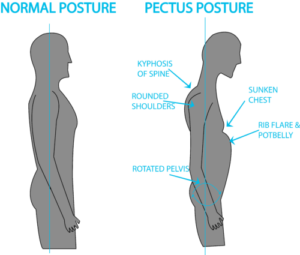


Bullying in the Workplace
Do you recognise more than one of these behaviours? Do they happen often?
Gossip or rumours
- Being humiliated or ridiculed
- Being ignored or excluded
- Insulting or offensive remarks
- Persistent criticism of your work
- Excessive monitoring of your work
- Threats of violence or abuse
- Having important information withheld from you
- Ordered to do work below your level of competence
- Being exposed to an unmanageable workload
- Repeated reminders of your mistakes

Chat to Elene about how you can support effective change.
Being bullied can make you feel quite hopeless because the bully is in control and you never know when they’re going to do or say something to put you down. It’s the uncertainty and the lack of control that makes you feel as if you’re drowing with now way out.


5 Top Tips To Improve Performance

‘How can I be PROACTIVE when things aren’t going well?
Resilience is defined as ‘‘the capacity of a group of employees (read players), within a team to manage the everyday pressure of work and remain healthy, to adapt to change, and to be proactive in positioning for future work challenges’’
- Set boundaries.
When pressure was building for James, because a client was very needy and ringing at all hours, he had to set boundaries, step away from his computer late in the evening and tell the client that he wasn’t available until the next morning after a meeting. This gave him space and time for some ‘self care’. - Have a self care routine
That could be several glasses of wine but that might not bring the benefits of clarity which helps to improve your focus. Exercise increases those lovely endorphins that make us feel good so try to make time for exercise or even a meditation. - Talk to a friend or colleague
Talk about how to move forward rather than going into victim mode. The blame game might make you temporarily feel better but the feeling doesn’t help you to grow. Be aware of the habits that make you feel good about yourself in the long term. - Take a few long deep breaths
In fact, take more than a few. See how few breaths you can take in 30 seconds. If you really want to get technical, time your heart rate before you begin and after 30 seconds. I bet your heart rate will be lower. Lower heart rate = feeling calm. Lower blood pressure – living longer.
In the old days we would say, ‘Just count to ten’ and that actually works too to slow down the heart rate and reduce the damaging stress hormones. - Be kind to yourself
Don’t get into the thought pattern of, I should have done this or that. Acknowledge that there are some things you just can’t change and instead focus on what you can do now.
Events last year in the AFL finals (or quarter and semi finals to European
folks), have shown the dramatic effects of the mind games professional players experience with two top Aussie teams getting absolutely hammered recently when it came to their big day. Now with the all important final only one sleep away, which team has got their act together mentally as well as physically?
 What difference does your mindset make?
What difference does your mindset make?
Resilience really jumps out at you on the playing field when your team is down on points but if you stay focused and don’t lose your temper or lose faith in the power of your team mates, you’re more likely to come back on top. Staying focused on the positives and self belief, are the dominant mindset of successful people and successful teams.
Changing the Neural Pathways
Positive thinking and a healthy perspective on change are things that you can grow with a bit of training. That’s not to say that you’ve got rose coloured glasses on but you can train your mind to engage the neural pathways that make the highway to success bigger than the highway to failure. Don’t let your thoughts get sucked down that black hole every time something goes wrong!!
Resilience is defined as ‘‘the capacity of a group of employees (read players), within a team to manage the everyday pressure of work and remain healthy, to adapt to change, and to be proactive in positioning for future work challenges’’
Improving performance is founded in self-belief and the knowledge that whatever happens, things will turn out fine in the end. If you constantly ‘catastrophize’ and think the worst, that might well be what you get!! We are who we think we are How can we put a stop to the erosion of our true selves and see ourselves in a positive light? I wrote the word confidence with the emphasis on the Con for a reason. The mind controls the body, controlling how the body reacts, and how we feel so we can Con the mind into believing what we want it to believe Accentuate the Positives During a workshop last week, I asked the participants to write down five positive things about themselves. They found this quite challenging and struggled even more when I asked them to say to themselves, “I am wonderful.” Most of the things they wrote were about what they were good at – like – “I am good at cooking.” though one woman was able to say, “I think I’m a good mother.” Can you see the difference? We really struggle to say nice things about ourselves and worry that other people might think we’re self centred and ‘up’ ourselves but there can be a middle ground where you’re quietly confident about who you are and able to say nice things about yourself. The Brain doesn’t know when you’re acting It may be that you don’t actually say negative things but you think them all the time. That’s where the CON comes in! We are who we think we are. You can Con your brain into believing stuff just by thinking it so learn to say nice things to yourself, beginning with thoughts and then say it out loud. If this is a tough thing to do, imagine that your in a TV ad’ or a play and you’re acting a part and practise. The good news is that the brain doesn’t know you’re acting!!! If you pretend to laugh, the brain reacts to that event as if you are really having a good laugh so it releases the good hormones – the endorphins to calm the body Studies were conducted where people had to imagine that they were lifting a weight with their right arm and after a number of sessions, the muscles in that arm were bigger!! Can you believe that!! Amazing.


How productive are your team?

Your perspective influences all of your decisions.
What will it cost you to lose a key worker? Do you know how productive – or not – your staff are? How do you measure productivity? What are the blocks to productivity?
People are your number one resource and everyone is different. Your manager may be good at their own job but hopeless at developing their team. You like them and don’t want to stop them doing their job but how do you build employee engagement and support growth? Your manager is costing you money because the team needs to become more productive.
Awareness training will go a long way towards identifying behaviours that don’t promote growth but to really get down to the nitty gritty, to identify what’s holding you back I’d recommend the ‘Working with Resilience’ toolkit.
Learn more…..https://elenalennox.com/process/
Estimated cost of replacing staff 20% of annual salary for mid-range positions (earning $30,000 to $50,000 a year). For example, the cost to replace a $40k manager would be $8,000.
Up to 213% of annual salary for highly educated executive positions. For example, the cost to replace a $100k manager is $213,000.
Can you afford to lose a key worker?
What is the value to you to have your team all on the same page, working productively together?
Michael Malone, founder of iiNet said that in order to be creative, we need to be prepared to learn from failure. Positive people recognise that a failure doesn’t mean they suck. They can rationalise the outcome and keep growing but that only happens when employees feel they are listened to.

Fostering a ‘sense of belonging’ means improved Employee Engagement Can you afford to lose staff?
Find out how to work with your team and improve productivity. Call Elena OR -> Just open the chat icon on the right if you have any questions.
Get your team excited. Give them a chance to compare where they are ‘at’ and where the team leader ‘sits’. Find out if they really have that ‘sense of belonging’ using the 180 Resilience at Work evaluation.


Stress Proof Your Business
Tell the world that you’re successful and get new business.
Show me what your body looks like when you bend over your laptop or text on your phone. Go on – do it. Now show me what depression looks like. Yes. I’m asking you to move into that hunched over position that resembles someone on their phone.
Now sit up and imagine that you’ve just had an interview and got a fabulous new job. Spend a few minutes in this position. SMILE Be that successful person!!
How does your body feel? Wonderful.

Be that successful person. Your mind listens to your body. Success Starts with You! “What message are you sending to your brain?”
2. Superhero
If you really want to energise your brain and get that feel good glow, stand for five minutes every day in the superhero pose. Come on, we’ve all got time. Start a trend in the local cafe when you’re waiting for your coffee. Hands on your waist; knees slightly bent; shoulders back but soft and not tense; feel as if the vertebrae in your neck are growing so that you stand tall. Think about that fabulous job you’ve just won (even if you haven’t yet). Just standing tall or ‘sitting tall’, allows more oxygen to reach the brain. How good is that?
3. Produce new neural cells to boost brain power
Let’s do a few squats. Oh no I hear you say, but look at the benefits:
“Engaging lower body muscles sends signals to the brain to produce new neural cells. Some of the very building blocks that allow us to handle stress and adapt to challenge in our lives.”
I’m lazy so I’ve signed up at the gym several times, only to find that I don’t make it more than three times. Doing 100 squats a day pumps up my heart and has really made a difference to my fitness. Commit to doing squats every day – you can do 100 in seven minutes- to improve bone health, encourage the production of new neural cells and strengthen your pelvic muscles. How good is that? You can do 20 squats in no time at all so make a start today.
4. Make your goal visible
Changing habits is something we can all do. I challenge you to create a tick sheet and put it on your fridge to show 21 days of activity. Without that constant reminder, your brain goes back to the default pattern. Replace your old habit with a new visual reminder. Choose one of the tips above to put into action. Or even better, do both of them. 21 days is all it takes to create a new habit.
5. Create new neural pathways
When I was challenged to do 100 squats a day for 30 days, my first response was – Bullshit – you’re kidding me. I’ll never be able to do that. I hate squats! I was persuaded to start small and that worked well. By the end of the second week, I was onto it and even better, my brain was onto it. Can you believe it? I’d just lie down in bed at night and my brain would go ‘DING’ ‘You haven’t done your squats.’ I’d feel compelled to jump out of bed and stand in the bathroom or at the side of the bed, stark naked, doing one hundred squats as fast as I could, not really caring how they were done. What a sight.
My point is that my brain had formed new neural pathways to get that message to me. WoW. How amazing is that! So get that mind body connection going and change your mindset to reduce anxiety. unexpected-benefits-squats/ Find more articles at elenalennox.com
Elena is a Wellbeing Coach and Resilience Trainer who is passionate about staying well.
Is your mind full of STUFF? How is that fragmented jumble of thoughts coming and going affecting your ability to focus? Often our mind jumps from one thing to another, thinking about something we could have done better or we’re concerned about what we’ve got
to do. The body becomes tense, shoulders tight, breathing shallow.

The cartoon of the child shows that he or she is looking around and probably enjoying the moment. The senses are engaged and the person is ‘present’, not thinking of yesterday or tomorrow and problems yet to come.

WHAT can you do to be more present?
Sitting in your office chair, it’s a bit hard to relocate to a space in nature but Awareness Training can teach you strategies for noticing when you are tense and ironing out the irritations that seem to wind you up.
KEY TIPS.
If you can’t do anything about it, let it go Notice how your body feels at different times and let go of the tension.
Stop for a minute – that’s all it takes.
Relax your shoulders, sit up straighter, sigh and breath deeply. Think of something that makes you smile and your brain will change.

Mindfulness can improve productivity
